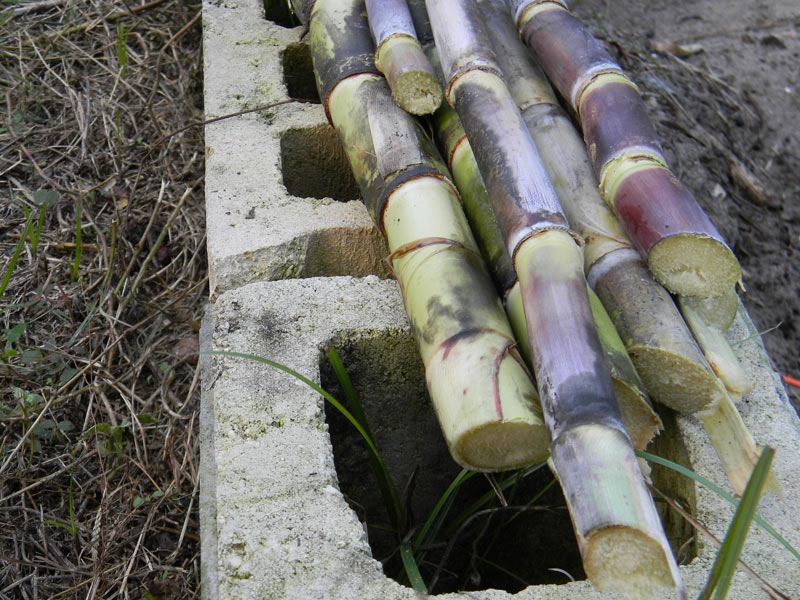Why Sugar and Cane Are Essential Ingredients in Baking and Cooking
Why Sugar and Cane Are Essential Ingredients in Baking and Cooking
Blog Article
Why Walking Stick Sugar Handling Chemicals Are Crucial for Modern Sugar Refining
The function of cane sugar processing chemicals in contemporary sugar refining can not be overemphasized, as they are integral to improving both the effectiveness of removal and the overall high quality of the end product. Representatives such as phosphoric acid and specific flocculants are utilized to get rid of contaminations, resulting in sugar that not just satisfies customer assumptions yet likewise abides by sector criteria. The ramifications of these chemicals prolong beyond high quality, touching upon market characteristics and ecological factors to consider. sugar and cane. This elevates essential inquiries concerning the sustainability of such techniques and their influence on the future of sugar manufacturing.
Function of Processing Chemicals
The efficiency of cane sugar processing pivots substantially on the critical application of handling chemicals. These chemicals play a crucial function in improving the effectiveness and high quality of sugar extraction and refining. From the initial phases of juice removal to the final purification steps, processing chemicals facilitate different critical procedures.
In the extraction phase, chemicals such as phosphoric acid and calcium hydroxide are used to enhance the clarification process, aiding to eliminate impurities and suspended solids from the walking cane juice. This not only improves the return however likewise guarantees the quality of the last product. Additionally, representatives like flocculants aid in the rapid settling of impurities, thereby improving the general process.
As the handling advances, chemicals are made use of in decolorization and formation phases. Activated carbon and ion exchange materials offer to get rid of shade and odor, making certain that the refined sugar fulfills customer high quality standards. Eventually, the role of processing chemicals extends past operational effectiveness; they significantly affect the sensory characteristics of the final item, adding to market competitiveness. Therefore, the precise choice and application of these chemicals are essential for accomplishing optimum results in cane sugar handling.
Secret Sorts Of Chemicals
Walking cane sugar handling relies upon a selection of key chemicals that assist in each phase of manufacturing. These chemicals play necessary roles in clarifying, bleaching, and purifying the sugar drawn out from walking cane.
One primary category of chemicals includes flocculants, such as polyacrylamide, which help in the clarification process by promoting the aggregation and settling of pollutants. Furthermore, calcium hydroxide is frequently utilized to reduce the effects of acidity and aid in the removal of non-sugar components.
Lightening agents, such as triggered carbon and sulfur dioxide, are used to decolorize the syrup, resulting in a clearer end product. These chemicals aid remove color compounds that may affect the sugar's appearance and bankability.
In addition, phosphoric acid offers as a pH regulatory authority during the handling phases, making certain optimum conditions for the enzymatic tasks associated with sugar extraction and filtration.
Various other crucial representatives include edta (ethylenediaminetetraacetic acid), which chelates steel ions that could catalyze undesirable responses, and salt hydroxide, which helps in pH control throughout the refining procedure. Collectively, these chemicals boost performance and make sure a premium cane sugar item.
Advantages for Sugar High Quality
Typically forgotten, using specific processing chemicals significantly boosts the overall top quality of cane sugar. These chemicals play an essential function in refining procedures, guaranteeing that the end product meets rigorous market criteria for purity and taste.

Furthermore, processing chemicals help in achieving a consistent granulation and texture, which are essential for customer approval. By managing the crystallization procedure, these chemicals make certain that the sugar crystals form uniformly, bring about a more attractive product that liquifies well in numerous applications.
Additionally, making use of these chemicals can boost the rack life of walking stick sugar by lessening moisture absorption and microbial development. On the whole, the calculated application of processing chemicals is necessary for providing top notch walking cane sugar that satisfies consumer expectations and industry demands.
Ecological Effect Considerations

Moreover, the energy-intensive nature of sugar refining, worsened by chemical use, often results in boosted carbon emissions. This contributes to climate change and raises issues concerning the sustainability of present refining methods. Additionally, the sourcing of these chemicals might include techniques that threaten biodiversity, such as monoculture farming, which reduces the resilience of farming ecosystems.

To minimize these effects, sugar refiners are significantly checking out sustainable alternatives and embracing finest practices that minimize chemical use. Carrying out rigorous ecological administration systems can assist ensure that the refining procedure lines up with environmental requirements and promotes biodiversity. Inevitably, a well balanced method that focuses on both sugar quality and environmental stewardship is crucial for the long-lasting viability of the sugar sector.
Future Patterns in Refining
As the sugar sector faces the ecological difficulties connected with traditional refining approaches, innovative approaches are arising to improve both efficiency and sustainability. One considerable trend is the fostering of green chemistry concepts, which prioritize making use of safe, naturally degradable handling chemicals. This shift not just minimizes ecological effect yet likewise addresses customer demand for cleaner production methods.
An additional promising advancement is the execution of advanced purification innovations, such as membrane layer separation and adsorption procedures. These strategies improve the quality and high quality of the sugar while lowering the volume of wastewater produced throughout refining. In addition, the combination of electronic technologies, including IoT and AI, is changing functional performance by enabling real-time surveillance and anticipating maintenance, hence minimizing resource waste.
Moreover, using by-products from sugar refining, such as bagasse and molasses, is gaining traction. These materials can be exchanged biofuels or value-added items, adding to a round economy within the industry. Collectively, these patterns indicate a change in the direction of even more lasting methods that not just improve functional performance yet additionally line up with worldwide sustainability goals, making certain the future stability of sugar refining.
Verdict
Cane sugar processing chemicals are crucial in modern check this sugar refining, significantly enhancing the efficiency and high quality of sugar removal. The calculated usage of these chemicals not just enhances the purity and flavor of the end product but also makes certain regular crystallization and texture. As the sector increasingly focuses on sustainability, the adoption of environmentally-friendly handling representatives is likely to form future fads in refining, eventually bring about better items use this link and expanded service life for customers.

Inevitably, a well balanced technique that prioritizes both sugar high quality and ecological stewardship is essential for the long-term feasibility of the sugar sector.
Cane sugar processing chemicals are necessary in modern-day sugar refining, significantly improving the effectiveness and high quality of sugar removal.
Report this page